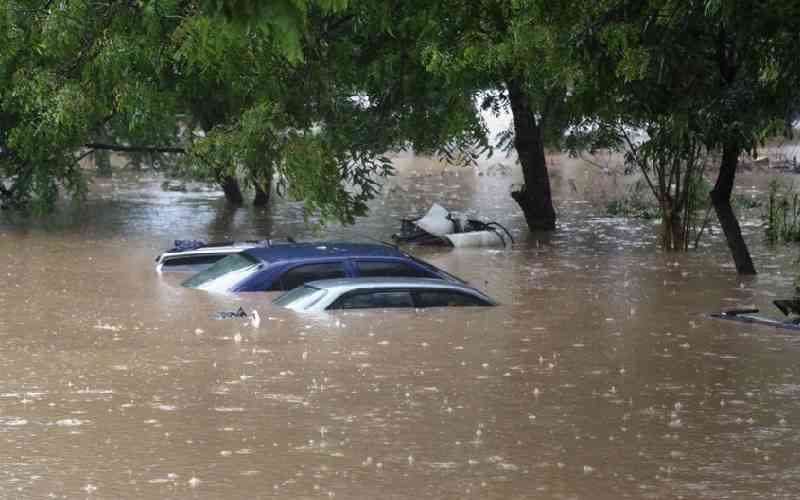The problem with Nairobi is you have to pay for everything — even going to the toilet!” Sam Kijogi says despondently.
Most people living in Nairobi have long since stopped complaining about such things, but Mr Kijogi is new to the city and ignorant of its ways.
What many people do not realise, however, is that public toilets are a cash cow that city authorities are yet to take full advantage of.
When it comes to these public facilities, though, Tanzanian cities have jolted the region by thinking entrepreneurially.
Strict laws
According to The Citizen, a daily Tanzanian newspaper, municipal authorities have devised ways to conserve the environment through proper sanitation, and make millions of shillings while at it.
In the town of Ilali, just outside the city of Dar es Salaam, the municipal council operates 25 toilets. Strict implementation of by-laws earns the town Sh10.2 million (TSh216 million) a year.
In Kinondoni, another municipality outside Dar, the council operates 34 toilets and collects Sh33.7 million (TSh72 million) annually.
Dar’s collections also call for attention. Authorities collect between Sh6,700 (TSh130,000) and Sh7,700 (TSh140,000) each day from a single toilet in the port city. This works out to between Sh2.4 million and Sh2.8 million a year. From a single toilet.
The city’s major bus terminal, Ubongo, where travellers line up for the five toilets available, the council gets Sh11.8 million (TSh252 million) a year.
Now Dar authorities are planning to build more toilets to cash in on the windfall.
One of the big concerns in densely populated areas as regards public sanitation is keeping toilets clean. As The Citizen reports, the Dar City Council uses 10,000 litres of water to clean a single toilet block with five latrines each day.
But getting the cash to keep facilities clean is not a problem. Instead of the council drawing on its revenues for unplanned upkeep, it strictly enforces a law where anybody who dirties a toilet is immediately apprehended and fined. Also, anybody who reports those soiling toilets is rewarded.
The city council has also entered into a partnership with the Dar es Salaam College of Engineering and Technology (CoET).
Their plan is to collect waste from the toilets and turn it into biogas, which will then be used to light premises. Cheap manure from the waste will also be packaged for sale to farmers.
Stay informed. Subscribe to our newsletter
Urine from the toilets will be systematically collected in tanks, and with CoET’s Chinese waterless technology, be turned into urea. Urea is a nitrogen-rich, cheap alternative for top dressing crops.
Confusion in Nairobi
Back on our shores, it is bewildering that Nairobi’s administration does not have direct control of public toilets, or know how the revenue collected from them is accounted for.
There are an estimated 1,000 public toilets in Nairobi, with individuals charged Sh10 to use them.
Nairobi County Council (NCC) claims the Nairobi Central Business District Association (NCBDA) was assigned the role of controlling public toilets.
“We no longer deal with toilets. That’s a private function of the NCBDA,” NCC’s public communications office told Business Beat.
NCBDA Chairman David Gachuru, on the other hand, said his office has no knowledge about the issue of public toilets.
“Our organisation is dead since members stopped making contributions. I hear that the former chairman privatised control of public toilets, but he left us no documents to prove this. Moreover, I think public toilets should be under the county council. Not a private entity,” Mr Gachura said.
The issue of public toilets is, thus, tangled up in a maze of confusion and lost opportunities to create revenue, and improve sanitation and hygiene standards for a city of Nairobi’s growing stature.
[email protected]
 The Standard Group Plc is a
multi-media organization with investments in media platforms spanning newspaper
print operations, television, radio broadcasting, digital and online services. The
Standard Group is recognized as a leading multi-media house in Kenya with a key
influence in matters of national and international interest.
The Standard Group Plc is a
multi-media organization with investments in media platforms spanning newspaper
print operations, television, radio broadcasting, digital and online services. The
Standard Group is recognized as a leading multi-media house in Kenya with a key
influence in matters of national and international interest.
 The Standard Group Plc is a
multi-media organization with investments in media platforms spanning newspaper
print operations, television, radio broadcasting, digital and online services. The
Standard Group is recognized as a leading multi-media house in Kenya with a key
influence in matters of national and international interest.
The Standard Group Plc is a
multi-media organization with investments in media platforms spanning newspaper
print operations, television, radio broadcasting, digital and online services. The
Standard Group is recognized as a leading multi-media house in Kenya with a key
influence in matters of national and international interest.









